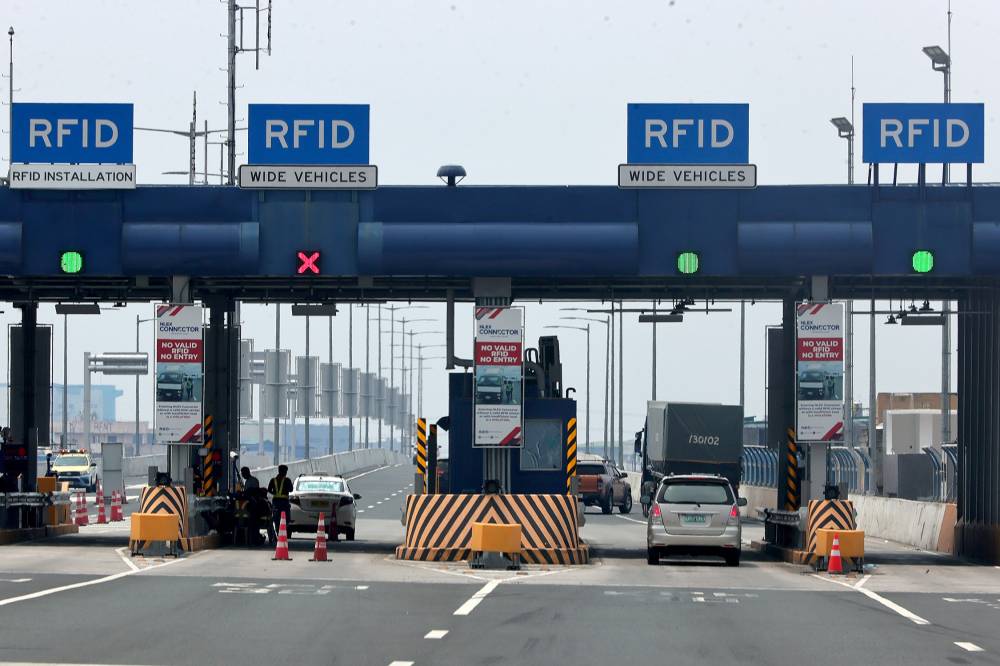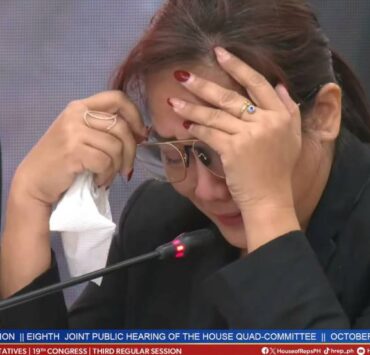Hefty hike in NLEx toll rates set on Oct. 15

The operator of North Luzon Expressway (NLEx) is set to increase starting Oct. 15 the toll rates for the NLEx Connector linking the Fifth Avenue portion of Circumferential Road 3 (C3) in Caloocan City to España Boulevard and Ramon Magsaysay Avenue in Sta. Mesa, Manila.
Under the new matrix, Class 1 vehicles (regular cars and SUVs) will have a P33 hike to P119; Class 2 (buses and small trucks), an increase of P84 to P299; and Class 3 (large trucks), a P116 hike to P418.
The current rates, until their increase takes effect on Tuesday, are P86 for Class 1; P215 for Class 2; and P302 for Class 3 vehicles.
The new rates were approved by the Toll Regulatory Board (TRB) after the NLEx Connector’s entire 8-kilometer stretch was opened in October 2023 following the completion of its España-Magsaysay section.
Another portion of the connector road also linking España had been completed earlier in March that year.
“Providing an alternative route for all vehicle classes, this all elevated expressway bolstered job and business opportunities in the areas it traverses by improving accessibility to and from the north,” the Pangilinan-led company said in a statement over the weekend.
This year, NLEx Corp. earmarked P12 billion for capital expenditures.
RFID policy
Meanwhile, a labor federation on Saturday denounced the TRB’s “persistent plan,” despite protest from several sectors, to impose in January 2025 penalties on motorists lacking functioning radio frequency identification (RFID) tags or with insufficient load on those tags.
The Federation of Free Workers (FFW) described TRB’s “no RFID, no Entry” policy as “legalized theft” and “highway robbery done without shame.”
“We strongly oppose the TRB’s announcement that penalties for noncompliance will begin in January 2025. This move will unjustly burden motorists who are already grappling with rising living costs,” FFW said in a statement issued by its president Sonny Matula and vice president Jun Ramirez.
“Toll roads are essential for work and daily commutes, and this penalty adds unnecessary financial strain,” they said.
“Instead of focusing on improving infrastructure and customer service, the TRB is creating new avenues for collecting fines and fees, punishing ordinary motorists for system deficiencies,” the group also said.
The RFID system was introduced to streamline toll payments and reduce congestion. But it has been plagued by such problems as faulty tag readers and inefficient reloading processes.
Matula, a lawyer, had also cited a provision in the Civil Code stating that legal tender should be accepted for all transactions in the country.
“Even if a motorist has cash and is ready to pay, [he] will still be penalized for not having an electronic ID. This effectively devalues our legal tender, recognized by law, making cash transactions—using currency issued by the Central Bank—subject to penalties. It’s both absurd and unacceptable,” FFW said.
The group said TRB should abandon the planned penalties and instead focus on fixing the tollway system’s reliability and accessibility before punishing motorists.
FFW also said it has exhausted administrative remedies by communicating its concerns to TRB, the Department of Transportation (DOTr) and the Office of the President.
“Unfortunately, the response from the Marcos administration has been nothing but ‘deadma’—a complete disregard. If these penalties are enforced in 2025, we will challenge this in the Supreme Court to protect motorists from unjust penalties,” Matula said.
But the DOTr has twice postponed the RFID policy, which was supposed to be implemented on Aug. 1.
With just over two months before the penalties take effect, FFW urged motorists to ensure their RFID tags are functional and loaded.

















